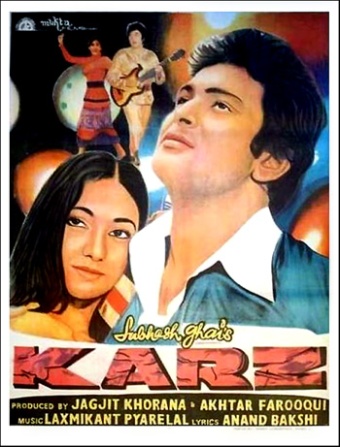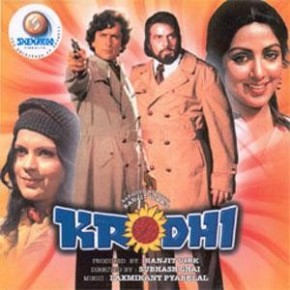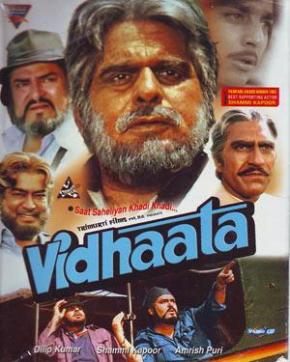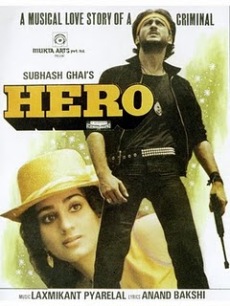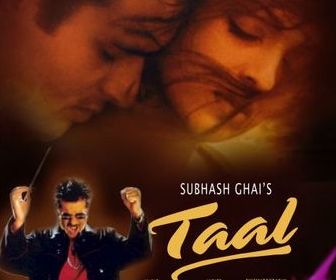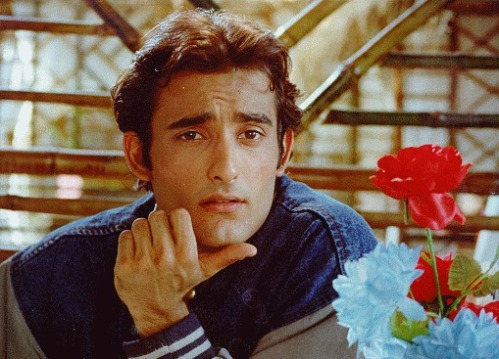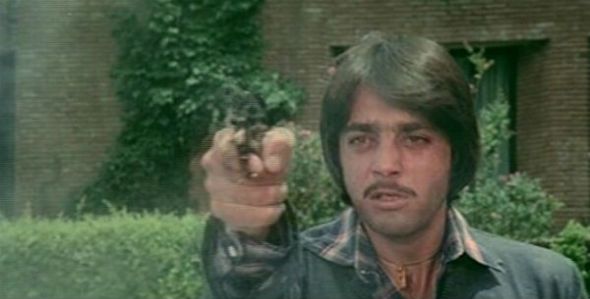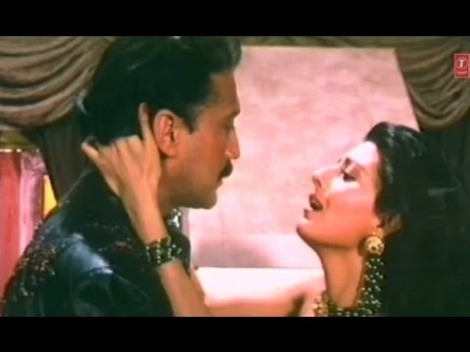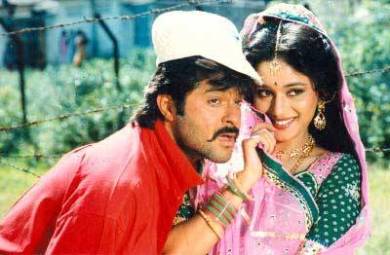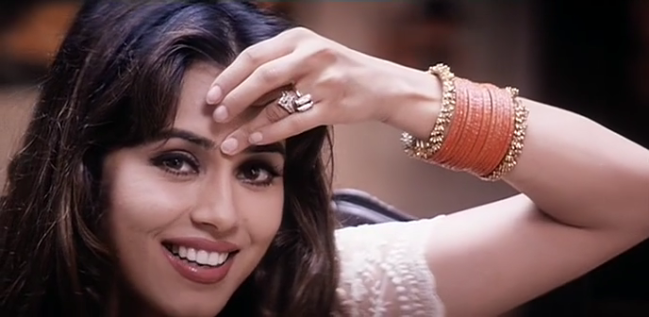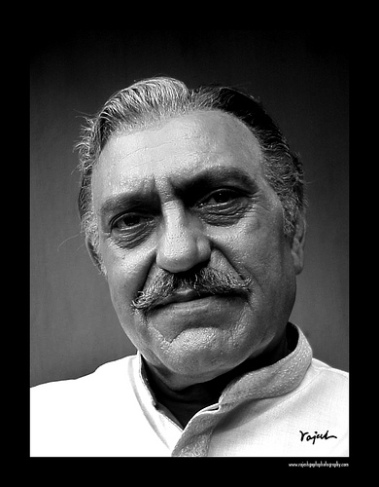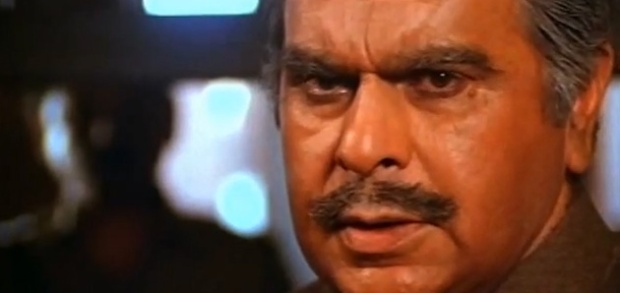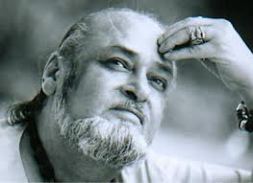BOI: Subhashji From writer to director to producer. What’s the journey been like?
Subhash Ghai (SG):I launched my production house by default. After directing four films, of which two were hits, I realised that the producers’ approach towards filmmaking was very different than a director’s. All they wanted to do was somehow complete the film and release it, which led to creative frustration in me.

I directed Kaalicharan and Vishwanath, which were superhits but my other two films, Gautam Govinda and Krodhi, were flops. Krodhi was one of my best scripts. I still remember the stars jumping at it when I narrated it to them, including Dharmendra who wanted me to start the film at the earliest.
When I started working as a director, I found that Kaalicharan and Vishwanath were made in one year but Krodhi and Gautam Govinda took three, three and a half years each. Shooting shuru hoti thi fir do mahine bandh ho jaati thi fir shuru hoti thiand I became restless. And I was sceptical because when you look at a three-year-old film, you may not like it as much as you did before. We kept on changing scenes and costumes with the current trends because audience tastes change every year. So the film was not what it was when we started.

I told Tolu Bajaj about these problems and asked for a solution. He suggested that I become a producer. I was very apprehensive because there’s so much to manage but he said if I wanted to make my kind of films, I should run a production house of my own. That’s how Mukta Arts was born in 1978.
And then Karz was made. I had to partner with a friend to make this film. Karz was fresh because I made it exactly as I wanted to. Unfortunately, Qurbani released at the same time and our film was a complete washout at the box office. Log kahte the film aapki achchi hain but collections Qurbani ke zyada hain as Feroz Khan was a star at the time. So we got our very first jhatka. But many people told us that we had made a film which was ahead of its time and we therefore knew we had made a quality project.
Tolu Bajaj (TB): Despite that, it went on to do jubilee at Ganga Nagar.
SG: After Karz, Gulshan Rai had signed me to direct a film for him. Raiji gave me full charge of production and just one cheque. He said he wanted to take a look at the first copy. I made Vidhaata for him, where I was also the executive producer.
Then we started Mukta Arts Pvt Ltd. The reason we converted from a partnership to a private limited company was very simple. I was a creative guy and I needed everything sorted around me, including discipline and vigilance. I didn’t want to fly high because directors have a habit of flying high after delivering hit films as they know that producers will not oppose them if the budget of their film goes overboard. I was advised by my friend not to make Mukta Arts a private limited company but I was determined to because I wanted everything sorted.
Then we made Hero. I always found that stars were a huge burden on your projects although they are a delight while selling the film. When you take a big star, the script follows them but when you take a newcomer, he follows the script.
When we follow the second rule, the film becomes superhit whether it’s a Bhaag Milkha Bhaag, Qayamat Se Qayamat Tak or Maine Pyaar Kiya. Once actors become superstars, their image takes over. So I picked up a new boy (Jackie Shroff) for Hero. Gulshan Rai loved the script but he said he couldn’t buy the film because the lead actor looked like Kabir Bedi to him. He didn’t look like an actor!
I told him he might know the economics of this industry but, from my creative perspective, he suited the role. Hero became a superhit and celebrated its golden jubilee at the box office. In Chennai alone, we ran the film for 75 weeks, four shows a day.
TB: He has had the same team throughout. And that’s because he believes in fair play. His entire team has been with him from the days of Karz. That’s the kind of goodwill that Mukta Arts enjoys.
BOI: How much did organising and corporatising the banner as Mukta Arts Pvt Ltd help you?
SG: Mukta Arts has helped me deliver superhit films one after another. We followed this rule that we would release a film as soon as it was completed. We usually start a film on October 24 – the day we launched our company and also my wedding anniversary – and release it close to August 5. We managed to do that with all our films, which were made on schedule. I am talking about the ’80s and ’90s, when films took three to four years to make. We used to maintain a chart and announce our release dates around eight months in advance.
BOI: Which everyone is doing now?
SG: They do the same thing now but we did it a long time ago. Today they announce dates for others ki main aa raha hoon, tum mat aana. But our announcements were more like a commitment to ourselves. We made all our clients extremely happy, we made sure all our partners earned profits, our distributors were extremely happy. We used to call distributors and tell them we wanted a 20 per cent profit-sharing.

I never once thought like meri pichhali film superhit hain toh main zyaada profit lu aur distributors ko barbaad kar du, aur khud abaad ho jau. That was one reason distributors were very happy with me. As soon as we announced a film, they used to give us a cheque with no questions asked and say, ‘After the release, we will talk.’
Trimurti bombed at the box office but we still made a profit of Rs 1.65 crore because we got a good price. I called Toluji and asked him about our profit-sharing and he said, Rs 1.65 crore. I wrote to the six distributors, telling them that I felt guilty that we made a profit despite delivering a flop, and shared the profit among them equally. The very next day, I started receiving calls from producers who called me mad. They said, ‘Aapne inko itni hits di hain, ek flop huyi toh kya hua? Kabhi inhone profit share kiya hain.’ But I was convinced of what I did because I didn’t want to betray their faith in me. Mukta Arts was the first company to actually return the distributors’ money. During Pardes, we gave them a 30 per cent discount. After that, Pardes became a superhit.
Another thing I realised that since the industry was not structured and everything depended on actors, it was very insecure. For instance, Sanjay Dutt was working on Trimurti but he was suddenly jailed and we faced a huge loss.
So through a colleague of mine, we organised a seminar and invited insurance companies and discussed why the film industry needed insurance. They said it was not possible since no one maintained any records in this trade. I called a separate meeting and showed them our accounts. They were shocked and said, ‘Corporates bhi itna detailed accounts nahi maintain karte hain.’ So they agreed to give us insurance,
Taal was the first film that was insured. They were nice enough to give us a policy and called it Cine Mukta Policy. Who introduced insurance to the industry? Who has launched the maximum number of newcomers? Who has given distributors their money back? Who introduced big actresses like Madhuri Dixit, Manisha Koirala to the industry? It was us. We fought the star system; we told them we would work on content; we would work on production; we would make sure we maintain the quality of the film; and that we would not stand for tantrums.
I made Saudagar with India’s two biggest stars, Dilip Kumar and Raaj Kumar, but there was not a single argument or tantrum on my sets. But we were not fortunate enough to work with superstars like Amitabh Bachchan and Rajesh Khanna.
BOI: Has it ever been tough for you (the team) to keep him (Subhashji) in check as he has been delivering one hit after another and therefore might go overboard with his budgets?
Parvez Farooqui (PF): When he makes unreasonable demands, we explain things to him and he agrees.
BOI: You have never allowed him to go over-budget?
PF: Well, if that budget is needed, you have to approve it because we don’t compromise on the quality of the film. But he is open to suggestions.
Rahul Puri (RP): It is an advantage that he is a producer himself. One of the great things about him as a director is that he doesn’t allow wastage. For instance, if the actor has delayed the shoot, he gets the production people to do other stuff that needs to be done and therefore effectively uses that time.
BOI: What is your perception of the production house then and now?
Rajesh Nair (RN): I have grown up watching Subhash Ghai’s films and I had a keen interest in joining Mukta. We have been working together on Kaanchi for more than a year and the learning process has been very good. It really stands out from my previous experiences. You can actually tell the difference between making cinema and making a film by a showman. The understanding of cinema as well as the conveying of cinema to the audience is different. I was working with a corporate house and the experience here is totally new. I have started looking at motion pictures differently and Mukta has made all the difference.
SG: With growth comes expansion, which for any businessman becomes a problem. So when we delivered 11 back-to-back hits, we had a discussion because the industry was changing as was the finance scenario. Every time, the industry changes, the one thing that remains constant is content. I have worked for more than 25 years and I know how difficult it is to make the right kind of a movie. Money will always change hands but money can’t make a good film.
So I decided to open a film school, where I could train young filmmakers to handle all this. If we are going to have 900 channels, we need as many filmmakers to make films. At the suggestion of a friend Vijay Choraria (on the board of directors), we turned our company into a corporate house. Mukta Arts was the first company to become corporate in Bollywood. Money was never uppermost on my mind; I have always tried to change the face of cinema.
BOI: Where do you plan to take the production house?
RP: We are expanding the education business. But there are two main areas. Obviously, with Rajesh Nair coming in, we are building our production slate and working on upcoming films. We have three to four films ready to go on the floors and a slate for the coming years too. In addition, our strength that we have built over the last 10-15 years is distribution and exhibition. Mukta today is still the largest controller of screens in the country, at over 450 screens. This means we programme for those screens. We are bookies for 450 screens.

Our distribution offices in Delhi and Mumbai distribute 40 films a year without paying anything, purely because of our ability to be transparent and the strength to add value to a film and getting the audience to cinemas. In addition, we recently entered into a joint venture with UFO, which will further expand the business to thousands, making us the single-largest supplier of film content in the country.
We also have three cinemas called Mukta Cinemas in Baroda, Ahmedabad and Gulbarga (outside Hyderabad), and have plans to open Jai Hind in Lalbaug, Mumbai. By this time next year, Mukta Cinemas will have 54 more screens. There are only four national players. And I think that this is a good opportunity for us, especially given our history of successful relationship with exhibitors and distributors.
We have a very different model. We want people to think it’s like a local cinema hall, where you know the manager and the watchman.
SG (Cuts in): Almost half the tickets were sold via tele-bookings in our first property in Baroda. I reminded my manager that we had to sell tickets to the public too!
BOI: Toluji, have you been working silently on this?
TB: Yes, I am very much a part of it.
BOI: How different is Mukta Cinema from other multiplexes, given that you are aware of the audience tastes?
TB: Like Rahul said, we are very strong on programming. We are working to get the pricing of tickets right. Also, the location and maintenance of cinemas has to be correct. One has to synchronise all these three factors to maintain profitability of the multiplex business.
RP: There is a gap in the entertainment industry to provide tickets at economical rates. It is increasingly difficult for people to pay the prevalent multiplex ticket prices. We are trying to fill that gap. Our prices may not be as cheap as they are used to in single screens but they will be affordable.
SG: (Cuts in) We have to fight the right battle.
RP: The idea is to offer people value for money. That certainly is one of the differences we are trying to make.
SG (Cuts in): You guys get all the data. Why don’t you compare our ticket prices with the others? You can also check the occupancy of our cinemas compared to others.
BOI: Does the production house help the distribution house or is it the other way round?
RP: The other way round. Iqbal we released in 52 screens in 2002. It was a film with no star cast.
SG: (Cuts in) There was shortage of multiplexes but our film was still in cinemas continuously and it enjoyed a long run.
TB: Iqbal clocked 100 days.
SG: That was due to our relationship with cinema owners.
BOI: Your company also opened an alternative banner called Mukta Searchlight Films. You launched this company before UTV, which started UTV Spotboy. What was the idea behind this and what is this vertical all about?
SG: People see Mukta as Subhash Ghai. Mukta is a corporate company, and Subhash Ghai is a director. He makes movies for Mukta Arts. So whenever there is a film under Mukta Arts, they connect it to Subhash Ghai. Whether it’s a small film like Rahul or Joggers Park, they always think, yeh Subhash Ghai aisi filmein kyun bana raha hai? They assume I am directing these films. Now they have understood that I own Mukta Arts and we also produce other people’s film.
In 2003-2004, it was difficult to make them understand this so we created another banner called Mukta Searchlight, which makes low-budget, high-concept films.
BOI: When corporate houses enter the industry, they usually acquire films. You have never acquired a film.
SG: The reason they do that initially is that they don’t have their own set-up to make films. Even now, which corporate apart from UTV really makes its own films? They are all co-productions and acquisitions. Even UTV started making their own films very recently. Earlier, they too were outsourcing.
BOI: But isn’t it healthy to tie-up with other studios to make films?
RN: There is nothing wrong with that. Mukta is also open to working with a company like UTV or Viacom18, for instance.
SG: Yes, why not? It’s a business. We are open to co-productions, co-business and acquiring projects.
RP: Times have changed, and these big studios have the financial backing to make films as well as a huge marketing budget. We deal with most of them on a weekly basis for programming and distribution. We have a long-standing relationship with them so I don’t think any of them will look at Mukta and say, this is not possible.
To return to what Subhashji said earlier, we want to make movies with clarity and not because it’s a compulsion.
SG: There are two things, either you’re making a project or making a film. In these times, 90 per cent are projects and only 10 per cent are films. This is not a healthy or a happy situation. Studios tend to look at films as projects, not at the concept per se. The priorities are reversed.
BOI: Toluji, everyone says times have changed and so as the audience. You have been part of distribution for so long. Has the audience grown up or have we?
TB: I don’t think the audience has changed very much. It’s just that there was no platform for them to evolve. Multiplexes have changed all that. The audience likes to watch different kinds of cinema and we can now make different kinds of cinema on different budgets. And because there are so many multiplexes, you can also make money.
BOI: Is that the reason the home video market has diminished so much?
TB: Yes, obviously.
SG: I don’t think content has changed very much. Pehle Shyam Benegal aur Govind Nihalani thhe aaj Dibakar (Banerjee) hai.
TB: Basu Chatterjee was also the same back then.
SG: Films like that used to work back then also. Also their collections used to be around 10 per cent and abhi bhi wahi hota hai.
TB: Yes, nothing has changed very much. Big films collect Rs 100 crore; small films Rs 20 crore.
SG: What has changed is the relationship with content and the weekenders that have divided cinema. There is a section of the audience who simply has to watch one film during the weekend. They don’t really watch the story but what the actress is wearing, whether the songs are good, and they look at the sets. They don’t really relate to the film. That’s why big star cast films are doing better business with every passing day.
BOI: Everyone is busy on their mobile phones.
SG: In any cinema hall today, you will see 20-25 lights on; everyone is on their mobiles. In our days, if someone so much as coughed, we would wonder what was wrong with the scene. Filmmaking has lost its edge. I call Bhaag Milkha Bhaag an authentic motion picture, not because it was a biopic but because of the way it was made, the way emotion was captured, the scale on which it was made, the way the ambience was captured. Alas, most filmmakers now think, ek weekend hi toh chalni hai. There is this perception about one weekend. But my perception is that even ten years later, my kids should watch my films.
BOI: What do films made under the Mukta Arts banner stand for?
SG: Content. We always focus on content; never on the ‘weekend’. We try to make films that will be remembered for ten years. It should have content as well as a soul.
BOI: Rahul and Toluji spoke about distribution and exhibition. Can you take us through the line-up of Mukta Arts?
SG: We will always try to make films on good subjects but the industry trend is star-focused, and the other is marketing. These two aspects have eclipsed content. The first thing they ask is to name the stars and whether the film has an item number in it or not. If you make them listen to the item song, they will not bother to listen to the other songs in the film.
RP: We have never been a company that says we have to make a particular film; we have always said if we get a good film, we will make it.
SG: We have never succumbed to that pressure.
RP: I don’t think we are ever going to be a company that sets a target number of films to make every year. We are now in a position where we have a very healthy bank of scripts, and with Rajesh coming on board, it’s helped a lot. For these scripts, we have to find like-minded people, whether actors, directors, writers or studios who need to come on board and give those scripts shape. These things take time and we are in no great hurry. It takes time to make the perfect biryani, doesn’t it?
BOI: Parvez-ji hasn’t said a word.
RP: He is man of few words.
TB: He looks only at cheques.
SG: He executes things. Bahut kum bolte hain.


























